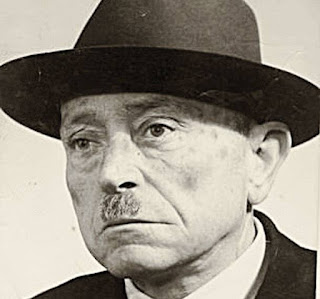Leo Tolstoy
Count Lyov (also Lev) Nikolayevich Tolstoy was born in to an aristocratic Russian family at Yasnaya Polyana, a family estate 12 kilometres (7.5 mi) southwest of Tula, Russia, and 200 kilometers (120 mi) south of Moscow, in 9 September 1828. He is best known for the novels War and Peace (1869) and Anna Karenina (1877), often cited as pinnacles of realist fiction.
The death of his brother Nikolay in 1860 had an impact on Tolstoy, and led him to a desire to marry. On September 23, 1862, Tolstoy married Sophia Andreevna Behrs, who was 16 years his junior and the daughter of a court physician. She was called Sonya, the Russian diminutive of Sofia, by her family and friends. They had 13 children, eight of whom survived childhood.
Tolstoy's contemporaries paid him lofty tributes. Fyodor Dostoyevsky thought him the greatest of all living novelists. Gustave Flaubert, on reading a translation of War and Peace, exclaimed, "What an artist and what a psychologist!" Anton Chekhov, who often visited Tolstoy at his country estate, wrote, "When literature possesses a Tolstoy, it is easy and pleasant to be a writer; even when you know you have achieved nothing yourself and are still achieving nothing, this is not as terrible as it might otherwise be, because Tolstoy achieves for everyone. What he does serves to justify all the hopes and aspirations invested in literature." The 19th-century British poet and critic Matthew Arnold opined that "A novel by Tolstoy is not a work of art but a piece of life."
The death of his brother Nikolay in 1860 had an impact on Tolstoy, and led him to a desire to marry. On September 23, 1862, Tolstoy married Sophia Andreevna Behrs, who was 16 years his junior and the daughter of a court physician. She was called Sonya, the Russian diminutive of Sofia, by her family and friends. They had 13 children, eight of whom survived childhood.
Tolstoy's contemporaries paid him lofty tributes. Fyodor Dostoyevsky thought him the greatest of all living novelists. Gustave Flaubert, on reading a translation of War and Peace, exclaimed, "What an artist and what a psychologist!" Anton Chekhov, who often visited Tolstoy at his country estate, wrote, "When literature possesses a Tolstoy, it is easy and pleasant to be a writer; even when you know you have achieved nothing yourself and are still achieving nothing, this is not as terrible as it might otherwise be, because Tolstoy achieves for everyone. What he does serves to justify all the hopes and aspirations invested in literature." The 19th-century British poet and critic Matthew Arnold opined that "A novel by Tolstoy is not a work of art but a piece of life."
Tolstoy died in 20 November 1910, at the age of 82. Just prior to his death, his health had been a concern of his family, who were actively engaged in his care on a daily basis. During his last few days, he had spoken and written about dying. Renouncing his aristocratic lifestyle, he had finally gathered the nerve to separate from his wife, and left home in the middle of winter, in the dead of night. His secretive departure was an apparent attempt to escape unannounced from Sophia's jealous tirades. She was outspokenly opposed to many of his teachings, and in recent years had grown envious of the attention which it seemed to her Tolstoy lavished upon his Tolstoyan "disciples".
Tolstoy died of pneumonia at Astapovo train station, after a day's rail journey south. The station master took Tolstoy to his apartment, and his personal doctors were called to the scene. He was given injections of morphine and camphor.
The police tried to limit access to his funeral procession, but thousands of peasants lined the streets. Still, some were heard to say that, other than knowing that "some nobleman had died", they knew little else about Tolstoy.
According to some sources, Tolstoy spent the last hours of his life preaching love, nonviolence, and Georgism to his fellow passengers on the train.
 |
| Leo Tolstoy (1828-1910) |






Σχόλια
Δημοσίευση σχολίου